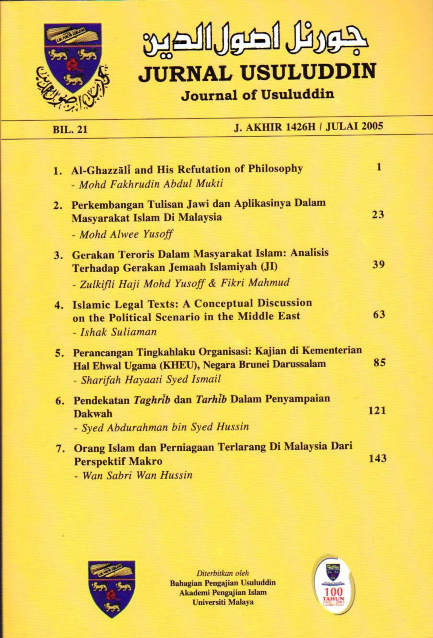Orang Islam dan Perniagaan Terlarang di Malaysia dari Perspektif Makro
Main Article Content
Abstract
The article based on the findings of a study which was done to observe how far Muslim businessmen in Malaysia are involved in businesses forbidden according to the Islamic Law. Three sources of information are used; firstly reading literature and collecting secondary data from government agencies, secondly observations and thirdly, discussions with some recognised Muslim scholars classified as gurus. Sources of hukm or rules are interpretations of Quran and fiqh books and discussions with those recognized scholars. Findings of the study is expected to be used in academic discussions and also subject for thought among Muslim entrepreneurs should or should not they be involved in those opportunities in businesses which are forbidden in Islam. The concept of prohibiting a Muslim from participating in certain businesses is based on two factors: trading products which are not allowed to be consumed or used by Muslims such as pork or pig products and those businesses comprised of activities against the principles of Islamic social interaction such as extreme social mixing males and females. The study reveals that, there are some Muslim participants in those kinds of businesses in Malaysia. The value of the businesses is huge in terms of trading and equity and the business is a contributing factor for their survival. The study concluded that, Muslims in the free country such as Malaysia are having freedom of choice either should or should not be involved in such kind of businesses. If they choose to be involved in developing such a business for the reason of material profit, then it is possible to state that, It is the end of Islam in Malaysia.
